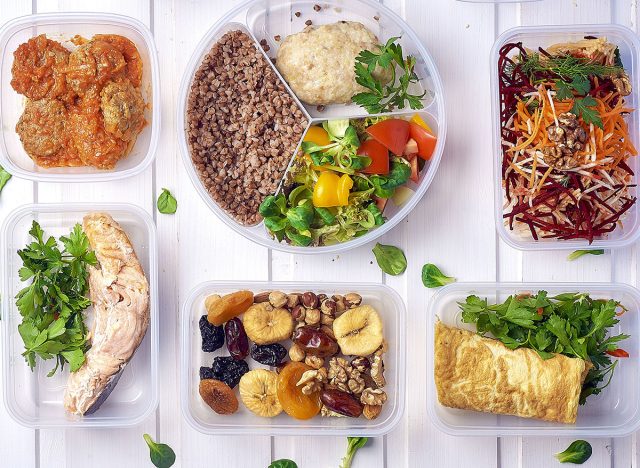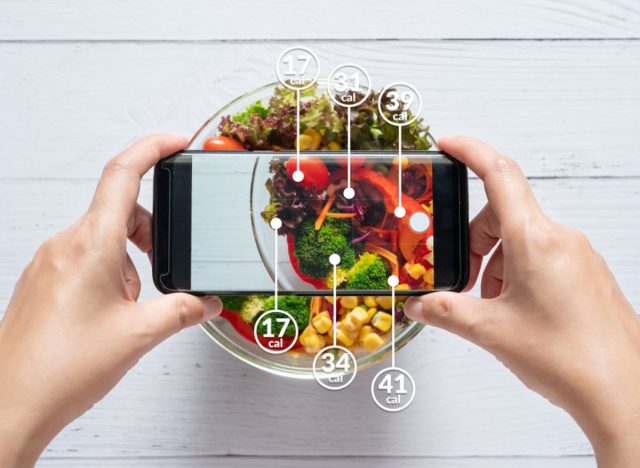Nutrition or Calorie Counting for Weight Loss: Where Should Your Focus Be?
Weight loss can really seem complicated, given the many methods available. The abundance of advice, whether it’s avoiding certain foods, eating more of others, or taking specific supplements, can create a confusing landscape. You may even find yourself at a crossroads, wondering, “Nutrition vs. Counting Calories for Weight Loss: What Should I Focus On?”
- Advertisement -
Despite different methods being promoted, the basic principle behind successful weight loss is the same: achieve an energy deficit, which means you need to consume fewer calories than your body uses. This can be achieved by changing your eating habits, increasing physical activity and making purposeful behavioral changes.
You can focus on reducing your calorie intake, or you can focus on improving your nutrition by paying attention to the foods you eat. Each approach has its advantages, but you may be wondering which is more effective or suitable for you. This article explores these two approaches, nutrition vs. counting calories, so you can decide which method is better for you.
The role of nutrition in weight loss

Nutrition is a critical factor in weight loss because the food you eat affects your body in different ways. To effectively lose weight, aim for a balanced diet filled with a variety of foods. Each food group provides unique benefits. Additionally, some foods can support your weight loss goals, while others can hinder progress if consumed in excess.
It is important to know which foods can help with your health goals and how much of each food you should eat. After all, ignoring nutrition when trying to lose weight is like trying to drive a car with an empty tank. You will eventually get where you are going, but it is much smoother and faster if you fill the tank first.
Eating with a focus on nutrition means incorporating a variety of healthy foods into your diet, such as lean proteins, beans, lentils, fruits and vegetables. Each of these foods offers distinct benefits.
For example, legumes are high in fiber, which helps you feel fuller longer and supports healthy digestion. Fruits and vegetables are also high in fiber and packed with vitamins and minerals that support your body’s daily functions and metabolism. Adequate protein intake can make meals more satisfying, help prevent overeating, and supports muscle maintenance and growth, helping with metabolism and recovery from exercise.
The role of calorie counting in weight loss


On the other hand, weight loss is fundamentally about achieving a negative energy balance, or consuming fewer calories than your body uses. To use calorie counting effectively, you need to understand how many calories your body needs to maintain its current weight and then reduce your intake to create that deficit.
This method involves learning the calorie content of the foods you regularly eat, which you can do using tracking apps or calorie reference books. Once you know which foods are high in calories, you can either reduce portion sizes or limit how often you eat them while increasing your intake of lower calorie foods like fruits and vegetables.
The benefits of focusing on diet


Focusing on the types of foods you eat and the nutrients they provide, rather than just counting calories, can help you develop a healthier and more positive relationship with food. This approach encourages you to consider what to add to your diet rather than just what to remove.
While calorie counting can feel like a constant struggle to eat less, focusing on nutrition helps you appreciate the benefits of different foods and supports a mindset of making positive choices. This method not only helps in weight loss but also offers many health benefits beyond just losing weight, making the journey more enjoyable and sustainable.
The benefits of focusing on calorie counting


Calorie counting can be easy because it focuses on a clear goal: the number of calories consumed. Using a calorie tracking app or tool makes it easy to see if you’re hitting your calorie goals, provided you estimate portions correctly.
This method can help identify patterns in your eating habits, such as consuming most of your calories in the evening or realizing that certain snacks are more calorie dense than expected. For beginners, calorie counting can be an easy way to start your weight loss journey.
Which should you focus on for weight loss?


There is no single answer when it comes to weight loss. The best approach is one that suits your personal preferences and is something you can realistically stick with. Although calorie counting can be helpful, many dietitians recommend focusing on nutrition rather than calories alone.
Overemphasis on calorie counting can sometimes lead to an unhealthy obsession with numbers, potentially leading to undereating, making long-term weight loss more difficult. Additionally, people often misjudge portion sizes or forget to account for small ingredients, which can skew calorie tracking.
For a balanced and sustainable approach, focusing on a well-rounded, nutritious diet is generally more effective in achieving and maintaining weight loss while supporting a positive relationship with food.

